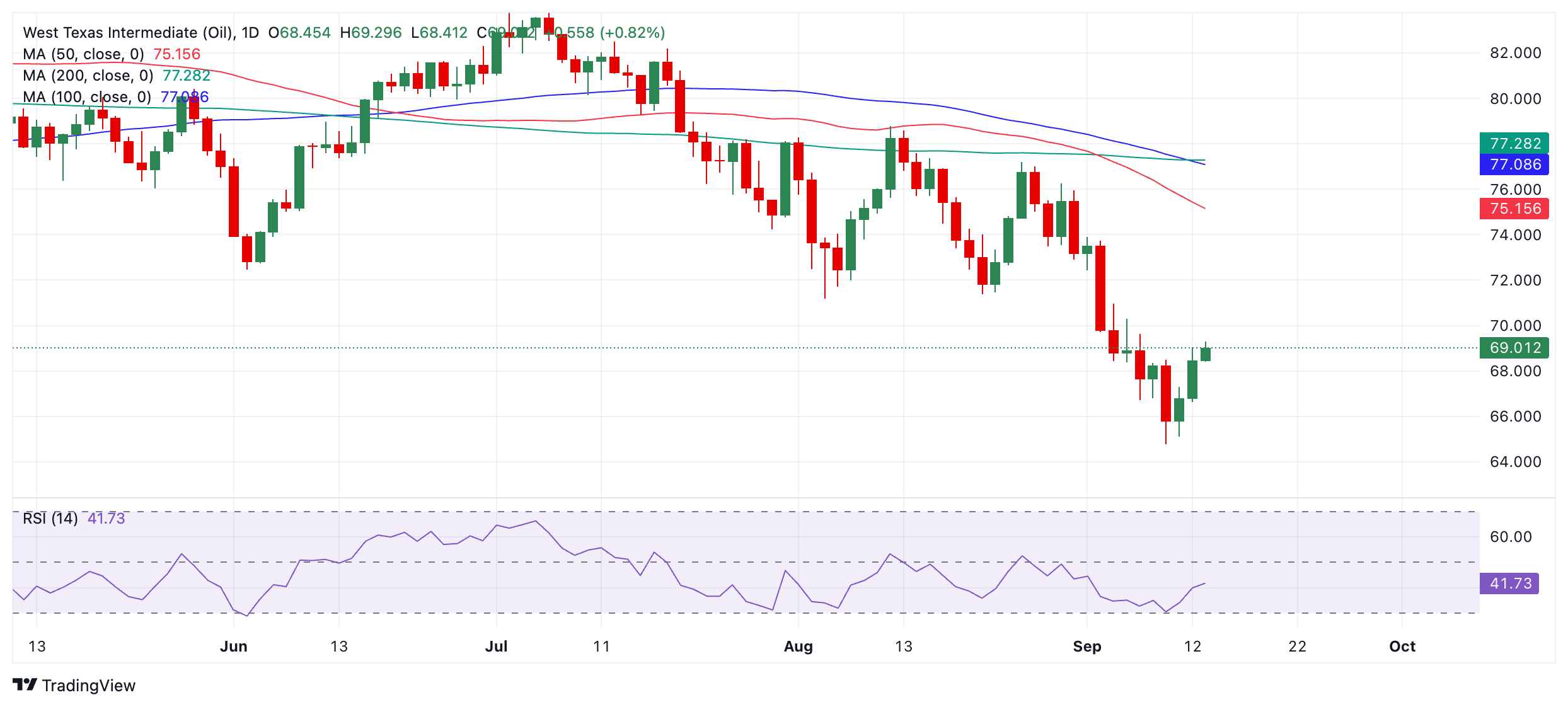WTI Oil recovers on revival of 50 bps Fed cut bets and Hurricane Francine
- WTI Oil is rebounding off four-month lows on renewed expectations the Fed may cut interest rates by 50 bps.
- Supply closures from Hurricane Francine which is ravaging the Gulf of Mexico are another bullish factor.
- WTI is forming short-term bullish reversal patterns on the daily and weekly charts.
West Texas Intermediate (WTI) crude Oil price is trading around the $69 per barrel level on Friday, as it rebounds from the over four-month lows posted on Tuesday.
If Friday ends positively it will complete three up days in a row for WTI Oil – a bullish reversal pattern known as a Three White Soldiers by market technicians. On the weekly chart a bullish Hammer candlestick pattern also looks to be forming, which if it completes further suggests the possibility of a short-term recovery rally unfolding.
Oil is rebounding on a mixture of a revival of hopes for a larger 50 bps (0.50%) cut in interest rates by the US Federal Reserve (Fed) at their up-and-coming meeting on September 17-18, and expectations of large mortgage rate cuts in China.
Lower interest rates are positive for Oil because they lower the opportunity cost of holding a non interest-paying commodity. The cut in Chinese mortgage rates might help stimulate growth in China’s ailing economy, and China is Oil’s largest buyer.
WTI Oil Daily Chart

Hopes of a 50 bps cut by the Fed were given a new lease of life in the financial media over the last 24 hours after temporarily foundering on the release of robust core Consumer Price Index (CPI) inflation data earlier in the week.
The renewal of market bets for a larger cut were sparked by an article in The Wall Street Journal (WSJ), in which a renowned Fed Watcher Nick Timiraos argued that a 50 bps cut was warranted. This was followed by a similar story in the Financial Times (FT), and a speech from former New York Fed President William Dudley who also advocated for a half-a-percent cut. The Two-year US Treasury yield dropped five points on the news and the USD saw further losses.
WTI Oil is also supported by news of Hurricane Francine which is ravaging the US Gulf of Mexico. An estimated 730,000 barrels of Oil per day, or 42% of the region’s production was outed on Thursday as a result of shutdowns caused by the hurricane.
Despite these factors, upside for black gold may be limited by a broadly negative demand outlook. Both the Organization of Petroleum Exporting Countries (OPEC) and the International Energy Agency (IEA) lowered their demand growth forecasts earlier this week. This, to a larger extent, overshadows worries about output disruptions caused by Hurricane Francine and limits the upside for Crude Oil prices.
The main reason for the negative outlook is China’s weakening economy. Recent data revealed that China's crude Oil imports were 3.1% lower from January to August 2024 compared to the same period in the previous year. Even if OPEC+ limits supply, a surplus of crude Oil is expected in 2024. In addition, US demand also remains tepid according to recent inventory figures.


